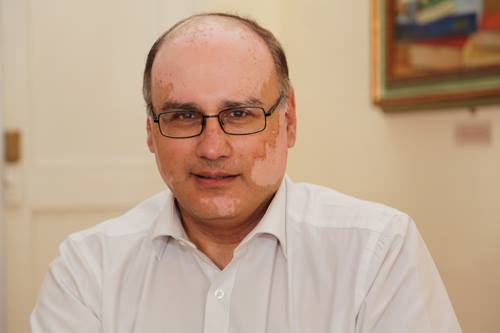Digital Green Certificate could be key for recovery of tourism industry

The Digital Green Certificate could play a crucial role for the recovery of the tourism industry in Malta, but its success depends to a high degree on the rate of COVID-19 vaccination across Europe and the mitigation measures to restrict the spread of the pandemic.
Economist Philip Von Brockdorff gave this reaction when asked by Voice of the Workers Weekly on his recent appointment as President of the Study Group on this proposal within his capacity as a member of the European Economic and Social Committee – an EU advisory body comprising social partners representatives from all member states. Dr Von Brockdorff represents UHM Voice of the Workers.
This certificate is intended to serve as evidence that its holder has been vaccinated, received a negative test result or recovered from COVID-19. It will be available, free of charge, in digital or paper format. It will include a QR code to ensure security and authenticity of the certificate. The European Commission aims to introduce it by June.
The EESC as the institution representing social partners and civil society has been asked to provide its position on the proposed Digital Green Certificate and a study group has been appointed which will be chaired Dr Von Brockdorff. The study group will deliver a position which will go to the Plenary for approval. Given the urgency of the situation a position is expected later this month and will go to the Commission as is the case with other Opinions.
“The Digital Green Certificate could prove vital to support the recovery of the tourism sector in countries like Malta that depend heavily on tourism. Of course, the vaccination programme and the measures being taken to battle COVID-19 shall remain critical to dealing with the pandemic, and the success of this initiative depends entirely on both the vaccination programme across the EU and other measures being taken,” Dr Von Brockdorff remarked.
He added that Members States’ Permanent Representatives will try to agree on this regulation on 14 April, at a new Coreper meeting (a body comprising the Permanent Representatives of the Governments of all EU Member States), in order to start negotiations with the European Parliament, which has accepted the urgency procedure.
“Some Member States have indeed indicated that they might need more time to consult regional parliaments and have suggested a transition period of one month, for example. The Commission, however, wants these Certificates to be operational by June,” the EESC member said.
The aim of the Digital Certificate will be to lift restrictions on free movement. However, the final say will presumably remain the responsibility of the Member States.
“The Certificate is not intended to serve as a travel document meaning that travellers must inform themselves on national measures in force ahead of their planned trip. Nor can these Green Certificates be a precondition to exercise free movement rights,” Dr Von Brockdorff pointed out.
